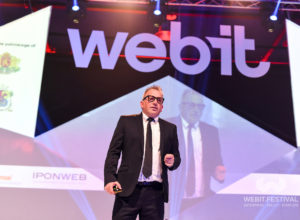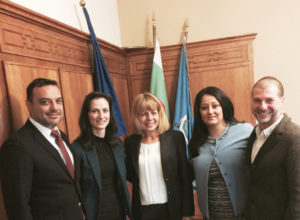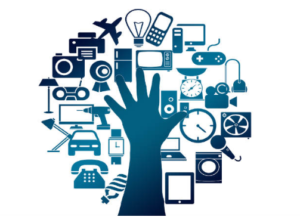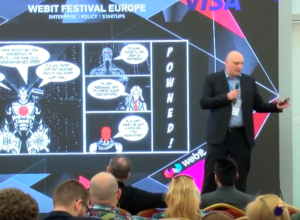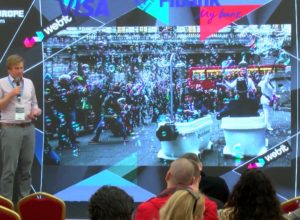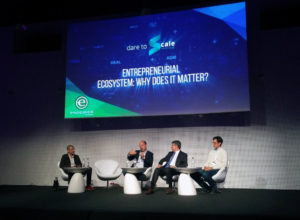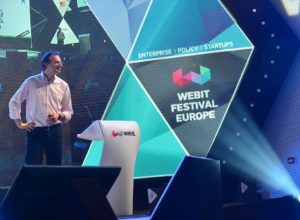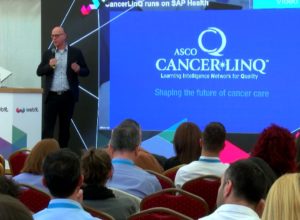Ethics in data usage
You must have heard about data
Just open up any news website, newspaper and the figures are there. It’s the buzzword of our time - everybody is talking about data, flow of data, security, protection, etc. As is technology. You use technology everywhere - all around you. Уou use it every single day. Аnd that’s exactly where the real danger lies. The Estonian Prime Minister, Kersti Kaljulaid, is saying that society is changing because of the washing machine, not because it landed on the Moon, quoted by local media seems more inline with what’s happening today that any other jibber jabber. That’s to say, simple, everyday technology really changed the way people live, not high end software that very few people possess.Now that you are scrolling facebook..
..how do you know that one of your friends is not exactly your friend? Or perhaps somewhere out there is holding you personal data for God-knows-what? Well you can’t. Internet and the websites offer anonymity to a huge extend. At least to somebody who knows how to work with data. For the artificial intelligence there are no hidden spots. Jason Jercinovic, the Global Head of Marketing innovation of Havas, tackled the ethical issues of companies using data, personal data, for various purposes @Webit.Festival Europe 2017. Machines today know all about you - the emojis you use, the personal thoughts you share and anybody with access to that can easily use this information. Why is it OK for a car company to know its customers, their behavior and send newsletters with the innovations they would be interested in? But it’s not OK when terrorist groups research and target young men and women to enter the military? Companies are still struggling to define what sensitive data is and how to protect it. The lack of clear regulations doesn’t help in fighting the problem. The first steps towards some kind of decision have been taken. In January 2012, the European Commission proposed a comprehensive reform of data protection rules in the EU. The directive will effectively enter into force from May 2018.This and more will be discussed @Webit.Festival Europe 2018
Webit is the flagship event of a European digital week part of which will be the Digital Assembly, the annual high level gathering of European executives. Topics like Data encryption, privacy & security as well as data flow and its ethical implications are part of the Innovation Summit. They will be covered by experts and legislators. If you want to keep up with the latest trends in the world of digital economy and technology, then Webit.Festival is the right place for you. Visit our website and book 2 in 1 of our Super Earlybird tickets for Webit.Festival Europe 2018. You can watch Jason Jercinovic’s keynote here: [embed]https://www.youtube.com/watch?v=vlDC9VSxUCU[/embed]Major update – Grateful
(left to right - Minister Transport, IT and Communications I. Moskovski, European Commissioner Digital Agenda and Society, M. Gabriel, Mayor of Sofia,. J. Fandakova, Minister of the Presidency of the Counsil of the European Union Mrs. L. Pavlova and the Executive Chairman of Webit.Foundation P. Russev)
Dear friends,
I want to share with you how grateful I am that the result of the efforts of so many partners - policy makers, enterprise leaders, founders, scientists, investors and friends of Webit to continue the dialogue on re:Inventing Europe's Future in such a positive and impressive manner! I will keep this major update as brief as possible and in case of interest to get involved – would be happy to provide you more info. A few days ago the European Commissioner Digital Agenda and Society Ms. Mariya Gabriel has officially announced the “EU Digital and Innovation Week”. It will take place on 25-29 June 2018 in Sofia, hosting:- 1500 top EU policy makers – Heads of State, EU Commission , EU Parliament, Ministers
- 5000 business leaders ranging from Fortune 500 top executives to most promising European startup founders
Webit.Foundation is proud to be part of EU Digital and Innovations Week and of these common efforts on establishing a clear focus on Europe's digital future and the role of CEE as one of the engines empowering it!
It is a great time for Europe to take advantage of the still untapped potential of CEE for the sake of all Europeans and for the sake of our children, whom we have borrowed our present from!
We have a lot of work to do together and now is about time to do it - latest 25-29 June 2018!
I would be delighted to see you at the 10th anniversary of Webit.Festival Europe 2018 and to welcome you as one of the impact people who will join us from all around the world.
Here is how you may get involved:
- Call for speakers – apply and join the world first class speakers of Webit.Festival Europe 2018 - one of the most impactful individuals in Europe and the World - Startup? Apply and get selected among Europe's top 200 startups. Webit.Foundation shall provide you EVERYTHING for FREE - free expo table, a pitch opportunity on stage and opportunity to get 200 000 EUR cheque! For the past 10 year Webit is committed on supporting the innovation and startup ecosystems in Europe and worldwide and unlike others we DO NOT charge money the people who build the future, but support and provide grants to them! See more online. - Exhibit and/or become a Sponsor of this unique opportunity in 2018 to connect with all parties involved in shaping the future of Europe – large enterprises, governments, municipalities and the entrepreneurial world. Attend and be among the limited number of 7000 people to discuss how to re:Invent Europe's Future while exploring unparalleled business and social networking. Looking forward to meeting you soon – latest in Sofia - The Digital Capital for Webit.Festival Europe and the "EU Digital and Innovations Week"!Warmest regards,
Plamen
The IoT tide
“If we had computers that knew everything there was to know about things - using data they gathered without any help from us - we would be able to track and count everything, and greatly reduce waste, loss and cost. We would know when things needed replacing, repairing or recalling, and whether they were fresh or past their best.” Kevin Ashton, digital innovation expert, credited with coining the term “Internet of Things”.
Let’s look at an example
In 2007, a bridge in Minnesota collapsed because of steel plates that were inadequate to handle the bridge’s load, resulting in many people being hurt. It’s one of the most catastrophic in terms of injured people, but many similar incidents are happening everywhere in the world. Despite periodic checkups of the structures, engineers and other staff involved couldn’t predict the exact moment a problem like this would occur.That’s where IoT can come in handy
When bridges or other massive structures are build or rebuild, instead of a regular one, a smart cement could be used - a cement equipped with sensors to monitor stresses, cracks, and warpage that signals when a problem arises and gets fixed before it causes a catastrophe. If the road on a bridge or any motorway and street is slippery, the same sensors would detect the hazard and communicate the information to the driver’s car. Once the car detects the hazard ahead, it indicates the driver to slow down or the car itself would slow down for him. Sensors on the bridge will connect and communicate with machines in the car, information is then turned into action. And these technologies aren’t limited only to a bridge’s structure. If policy makers and businesses get it right, linking the physical and digital worlds could generate up to $11.1 trillion a year in economic value by 2025. Currently, most of the data gathered by IoT systems and devices is not used. Cloud-based applications are the key to using leveraged data. The Internet of Things doesn’t function without cloud-based applications to interpret and transmit the data coming from all these sensors. The cloud is what enables the apps to work best anywhere and anytime.The game-changer
MClimate (Melissa Climate) is an IoT company which changes the way people use the appliances they already have. Its cloud system connects the heating and cooling system in one’s home, so an actual insight and control is gained of over 70% of an electricity bill. Their devices learn your preferences and habits - what temperature you are most comfortable with, when you usually get home, how long it takes for your HVAC system to cool down/heat up etc. Melissa climate won a Webit Award in the category Best Connected Consumer Electronics Device at Webit.Festival 2017. You can watch Lyubomir Yanchev’s pitch right here: [embed]https://www.youtube.com/watch?v=5d0gXq7cYpk[/embed] Stay up to date with the upcoming festival’s agenda here. If you wish to learn more about the IoT, you can check this article in Forbes magazine.Risk assessment is dead! Be risk aware.
Let’s put a cyber security smile on the face of your top docs.
In his presentation @Webit.Festival Europe, Boris Goncharov, a leading cyber security strategist, explained a rather boring subject - cyber security threats. And he did it with a story and fictional characters that he created himself! Boris Goncharov’s character - Captain Ciso, is the great defender of the Business city - the city where all the capital is - human, money, business doing, whatever. While he used to save data, defend the city and its citizens from malware, the situation is changed now. One the one hand, the villains express your organisation’s vulnerability. Next the Business city is attacked by bots and the worst type of threat is the very invisible one that never leaves traces and you never it was ever there. The city entered the 21st century. So did the Captain - along with Artificial intelligence on his side, he started using the combination of CMA - DTA - CDSS. This is the logic of the cyber security management of the future. This is the newest way to defeat your cyber security operations and will allow you to continue to monitor, correlate the state of these controls with the external environment. In order to do all this, you need to be aware of the external environment - a common mistake that everybody does - not making a risk evaluation. Once done, this brings nothing but knowledge - action needs to be taken, because threats are all around us. That’s why it’s vital to understand the correlation between your environment and what you can do. The solutions don’t change as much as the treats do. Risk assessment is dead! Today we have to be risk aware every minute. You can watch the full keynote of the captain here: [embed]https://www.youtube.com/watch?v=bNs_YFhe19c[/embed] If you want to stay up to date with the latest trends in security and privacy, Webit.Festival Sofia 2018 is the place for that. Visit our website and check the different ticket options.The future tech of money
Money and payments - an intriguing theme ever since way back in time, becoming more and more intriguing with each passing day. What makes it even more appealing is the never ceasing research and emerging tech innovations in the field. Blockchain, Bitcoin, international trade, digital currencies are in the focus and interest of not only corporations as a main actor, but for individuals too.
That brings the questions Kristo Kaarmann CEO of TransferWise, was trying to answer at Webit.Festival Sofia 2017. What is the future tech of money? Is it going to be Bitcoin? Ethereum? Or another type of blockchain currency? Are we still going to have banks in 10 years time or we’ll do banking on Google? Who can make a 100% certain statement and predict what and when will replace a financial system which is working, trusted and being accepted by many all around the world?
Kaarmann made an emphasis on an article published by The Guardian “Big banks earning huge profits from overseas money transfers”. Banks get their profits from different exchange rates, transfer fees, and fees on other services which are far from the cheapest option to manage one’s money. In recent years there has been a flood of fintech companies offering their solutions to individuals, corporations and banks themselves and at much more reasonable rate.
There are very few problems where tech is the only possible solution. Very often the solution lies not just in technology, but in technology and the things around it - governments, legislation, working with different institutions. For example, in fintech, that could be as specific as blockchain patterns and the governments’ enforcements on them through the more global issues such as acceptance of the new models and novelties by people. In order to find the answers of all the questions the financial system has yet to clarify, we’ll just need to wait for it to present and see.
You can watch the full keynote of Kristo Kaarmann here:
https://youtu.be/CWhI7UgRJLw
If you want to stay up to date with the latest trends in fintech, money & payments, Webit.Festival Sofia 2018 is the place for that. Visit our website and check the different ticket options.
Feel the Webit vibe with some of the best photos from this year’s event!
[easingslider id="4954"]
Entrepreneurial Ecosystem: Why does it matter?
At Endeavour's Dare to Scale Rosen Plevneliev - the president of Bulgaria 2012-2017, Fernando Fabre - president of Enveavor Global, Vassil Terziev - Co-founder of Telerik Acacdemy had a panel discussion about the value about Entrepreneurial Ecosystem, moderated by Plamen Russev - Chairman of WEBIT Foundation.
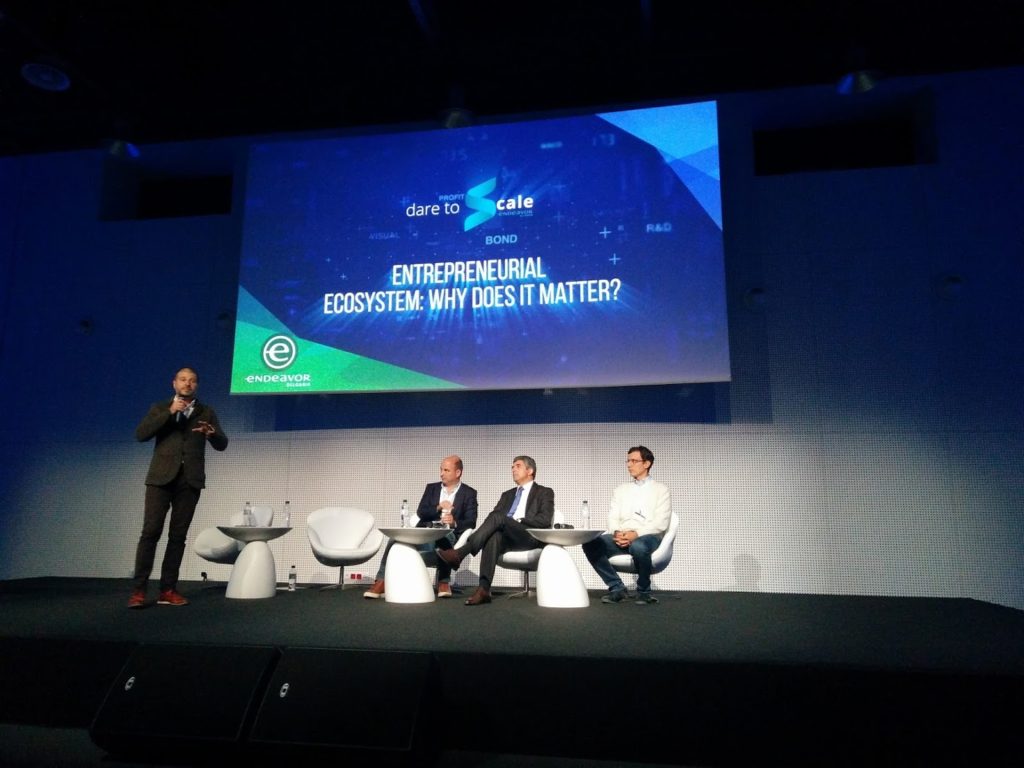 Webit Foundation commits its annual funds to foster the development of the startup and innovation ecosystems in the regions our global events take place.
Founders Games is the startup competition in the program of Webit.Festival Europe. During the event we not only provide free grant for startups to get a free expo table, free festival tickets and opportunity to meet unparalleled selection top enterprise leaders from all around the world + investors, but also an opportunity to WIN €200 000 seed investment!
Find out more about the Founder games here.
Webit Foundation commits its annual funds to foster the development of the startup and innovation ecosystems in the regions our global events take place.
Founders Games is the startup competition in the program of Webit.Festival Europe. During the event we not only provide free grant for startups to get a free expo table, free festival tickets and opportunity to meet unparalleled selection top enterprise leaders from all around the world + investors, but also an opportunity to WIN €200 000 seed investment!
Find out more about the Founder games here.
Strengths to focus on and weaknesses to work on
The discussion went through 3 stages - Bulgaria, Region and Global. Vassil Terziev took over the first stage going through the last 10 years of developing an entrepreneurial spirit in Bulgaria and bringing all the components of a working Ecosystem together. They include people, events which gather several thousand people together talking about the future. New and new formats are coming to Bulgaria every year. "The growth is a function not only of time, but also of communication and aligning the economic interests. In order something to be sustainable it has to make sense for everybody involved. And this is what is still missing." - mr. Terziev said, but staying still optimistic about what the Technology Ecosystem that's being built can do for the other sectors in Bulgaria.It's a kind of magic
"I believe in magic big time. We need the magic of giving back." mr. Plamen Russev We already have the Ecosystem startups and they are growing but do we need to focus on scale ups more? "They will make Bulgaria a better place, Through WEBIT, through Enveavor and other formats we will build those scale ups who will give back to the community." We need an ecosystem where every single person grows within the idea that he or she has to give back to the community – like the Israerli ecosystem. “You can’t say “I’ve done enough, now it’s time to give back” – no, you give back all the time. ”The Local Heroes
Mr. Rosen Plevneliev talked about the ambition of Bulgaria and how he shared his thoughts with several entrepreneurs in the Silicon Valley. “You are as big as your dreams are, not as big as your territory is. And to be globally strong, we need to be locally strong. This is what you, the local heroes are doing right now.”A map of ecosystems
Mr. Fernando Fabre took the audience on a world tour of the Ecosystems – from Buenos Aires, Mexico City, Silicon Valley, New York to Tel Aviv, Beirut and so on. He shared his opinion that it all goes down to inspiration. Big entrepreneurs inspire others – they grow and do the same – thus multiplying the mindset. “You call it giving back, Local heroes, I call it multiplying effect these are three terms that are exactly the same.” Webit Foundation commits its annual funds to foster the development of the startup and innovation ecosystems in the regions our global events take place.
Founders Games is the startup competition in the program of Webit.Festival Europe. During the event we not only provide free grant for startups to get a free expo table, free festival tickets and opportunity to meet unparalleled selection top enterprise leaders from all around the world + investors, but also an opportunity to WIN €200 000 seed investment!
Find out more about the Founder games here.
Webit Foundation commits its annual funds to foster the development of the startup and innovation ecosystems in the regions our global events take place.
Founders Games is the startup competition in the program of Webit.Festival Europe. During the event we not only provide free grant for startups to get a free expo table, free festival tickets and opportunity to meet unparalleled selection top enterprise leaders from all around the world + investors, but also an opportunity to WIN €200 000 seed investment!
Find out more about the Founder games here. How to market and sell when the act of purchase disappears
The act of purchase as we know it is progressively disappearing. Driving forces of it are the usual forces standing behind each global change happening: growing and aging population, higher standard of living, climate changes and scarce resources. Nowadays, we can also add the growing presence of digital in everyday’s life and the ever changing consumer behavior.
The VP Digital Transformation of SCA Gael de Talhouet gave quite an insightful keynote at Webit. Festival 2017 in Sofia concerning the change in the customer of tomorrow.
How do you sell products in a world where no one buys anything anymore? We’re moving from a world where we click, purchase, pay and collect to a world where we will just need to ask, because robots will know our needs.
More and more companies are introducing their subscriptions models, allowing us to get the things we want directly delivered to our homes without the need of going physically to get them from the shop. Amazon has developed the dash buttons which after being connected to your smartphone and pressed, the product you’ve chosen is automatically reordered. You don’t need to order, you just receive. Or speak, as in the case with Amazon Echo. Just ask, tell the device what you need, and it will find it for you.
The next step is when you don’t even need to speak. Fridges indicating the products that are missing from it, making lists of what needs to be purchased, washing machines and printers automatically ordering physical goods when supplies are running low. Smart devices noticing when you have a dinner with the friend who loves pizza or if you’re in need of a specific vitamins, asking to make an order for you. Or suggesting you a herbal detox tea after noticing you’ve woken up early and had a week full of meetings. It’s not rocket science, it’s history browsing and predictive analytics
And what if these devices can recognise our emotions? Scientists and are relentlessly working on and getting closer to breakthrough in the face of voice assistants.
The future of shopping is no shopping. People will not buy anymore because robots will buy. That brings the next question, how do you sell to a robot? Who will the robot buy from and how will it make the choice? Marketing strategies used to be consumer centric, while when this becomes a basis, companies will need to figure out is how to convince a robot to become their client. After digital marketing and e-commerce, welcome to robotic marketing and e-commerce.
You can watch the keynote of Gael here:
https://www.youtube.com/watch?v=SsT8LuHVg8s
Webit.Festival 2018 will gather again top speakers, policy makers and enterprise leaders. Stay up to date with our upcoming guests and agenda on our website and learn more about our ticket options.
Feel the Webit vibe with some of the best photos from this year’s event!
[easingslider id="4954"]
Cyber criminals – living like celebrities!? Their money is not from...
Raj Samani is the Chief Scientist of McAfee. He is an active member of the Information Security industry, through involvement with numerous initiatives to improve the awareness and application of security in business and society. He was inducted into the Infosecurity Europe Hall of Fame in 2012.
At Webit.Festival Europe’17 he was talking about cyber criminals, who are having a pretty good life, living like celebrities, but their money is not from hard work, this is stolen money! He wants us to know what are we up against - a brutal individuals, who have more money than we do and they are investing and growing every minute. Some of the targets of cyber criminals are hospitals - for example, in the UK they attacked a hospital via email and the result was that every emergency patient was no longer treated! These crimes don’t affect random individuals, they affect the whole world. The most disturbing thing is that ransomware could be done by
11-year-old children. It is simple like that! Nowadays children have online access to guns, drugs and could run campaigns, which is very worrisome on so many levels.
Today with ransomware you have 3 ways - neutral data, paid criminals and now you can have your data back. Raj said that until July they have provided 10,000 successful decryptions free of charge - that’s 4 million US dollars, who haven’t gone to the criminals and people got their data back.
You can watch his presentation
[youtube https://www.youtube.com/watch?v=Ts1FttnxQEI]
Webit.Festival Europe 2018 will gather again top speakers, policy makers and enterprise leaders
Visit our website and book our Super Earlybird tickets.
Feel the Webit vibe with some of the best photos from this year’s event!
[easingslider id="4954"]
Healthcare at its Gutenberg moment
“The main and huge problem in healthcare is data. Big data and big amounts of it. You can’t start creating huge clinical data warehouses anymore. The amount of data is simply exploding.”In case you’re wondering who Gutenberg is, he is the guy who invented the printing press and thus changed everything back in the times by starting the Printing Revolution. Now healthcare is at the doorstep of a suchlike event. Dr. Clemens Suter-Crazzolara, VP of Product Management for Health & Precision Medicine at SAP gave a keynote at Webit.Festival in Sofia about what are people and companies already doing with the help of technology in order to improve patients’ and doctors’ health experience and the treatment of patients. The main and huge problem in healthcare is data. Big data, and big amounts of it. If we walk in any given hospital, we inevitably notice that lots of the data we provide or data already collected, is taken on notes, sheets or some format of paper. Other industries are moving to digitalization with rocket speed but in healthcare it is not happening and this process is still somehow a struggle. Privacy, security and access to the correct data are all difficulties underlying ahead of healthcare in its process of adapting to digitalization. You can’t start creating huge clinical data warehouses anymore. The amount of data is simply exploding. You have to think of intelligent ways that the data stays in different locations, but for instance, you can send federated queries to those locations and then collect the needed answers. The use of mobile devices increases with each passing day. There are many apps which people use for consulting on their physical health, consulting with a physician online or simply googling their symptoms but the patient engagement is not fully tailored to both the patient and the physician. The need of a common platform that collects the experience and practices from physicians all around the world, as well as helping to collaborate and get information from one another and facilitating their day to day work is at the roots of change in the health system and that’s the thing SAP is trying to create. You can watch the keynote of Dr. Clemens Suter-Crazzolara here. https://www.youtube.com/watch?v=AwyLgKvCaBQ Physical and mental health, personal care and wellbeing are an ever growing theme in today’s everyday life. Recognizing it as an integrant area of value and interest, the Health & Wellbeing Summit at Webit.Festival Sofia 2018 will gather again top speakers from the industry, unveiling top tendencies and knowledge from their practice. Have a glance at last year’s Webit with some of our best photos and check our different ticket options here. [easingslider id="4954"]
Mobile first was yesterday. Today AI is first
“No matter if your business is in retail, bio, health or digital, if you want to stay relevant, focus on AI shouldn't be between the lines and done sluggishly but a top priority.” - Hristo Hristov, CEO of NetinfoHristo Hristov, CEO of Netinfo and IAB Bulgaria Chairman was one of the speakers at the Innovation Summit at Webit.Festival 2017. The company Netinfo is playing a major role in shaping the digital advertising landscape in the country and as such it has been a prominent spectator and actor in the digital trends and shifts locally and worldwide. Making the statement that mobile first is in the past and not a part of the future, Hristov made a point by initially giving a little test to the audience at Webit's stage. He asked for a raised hand from everybody who has done a marketing campaign or developed products for mobile. Result was basically 80% of the audience of around 1500 in the hall. Artificial Intelligence on the hunt Mobile now is the standard, the future is in artificial intelligence, calls Hristov from the stage. Most companies now think mobile only, and if they want to stay competitive, grow and acquire new customers on a new level, they need to start thinking AI first if haven’t yet. Having a great mobile app, having a great landing page, doing an incredible marketing campaign are all essentials for a successful business but becoming quite not enough. Not to mention digitalization, communications and tendencies but every tech-related thing is changing and evolving with a hard to grasp tempo.
Beforehand, we were the “hunters” who used to find a niche and go after it, hire the best talents who will build the best products and marketing campaigns. whereas now, we are the ones being hunted. By AI.Going a little back in time, Hristov recounted the story of a startup company - DeepMind technologies which got acquired by Google in 2014. They develop learning algorithms that use data or raw experience to better themselves and have created an engine which plays a certain game thousands of times better that any human being. In the beginning, the playing engine was losing every single round time after time. Things changed when the AI engine played the game for a hundred time, started getting better and better after each loss and reached a point of playing the best case optimal scenario for winning the game. Some would say that AI has a long way ahead of it until it reaches and affects each business but the development of AI is similar to the one of the game engine.
We see the progress of AI as a linear development but in reality, at some point AI will start growing exponentially, getting better after each downturn until reaching its full potential.AI systems are determining what results we get from our search, the order of their ranking and appearance, at which moment we will get a specific advertisement. It improves facial recognition and securing systems and privacy. AI systems are developed that spot Alzheimer’s brain changes years before symptoms emerge, writing music and novels. And it’s not stopping just yet. Stay on the tide: AI against trolls Fake news and internet trolls are not an unfamiliar problem of today's digital space. Writers and news providers have bumped with the negative side of people from all parts of the world having the comfort of a “behind the screen” freedom. In a responсе to that, a tool has been developed which can rank the toxicness of the comments in blogs, news sites and pages on the vast space of Internet. API.com is an open source platform that can be added to content sites, landing pages, forums and whatever type of sites which ranks actual online conversations and determines the percentage of toxicity in them. Afterwards, the process of extracting users marked as top toxic is smoothed and done harmlessly with a minimum damage.
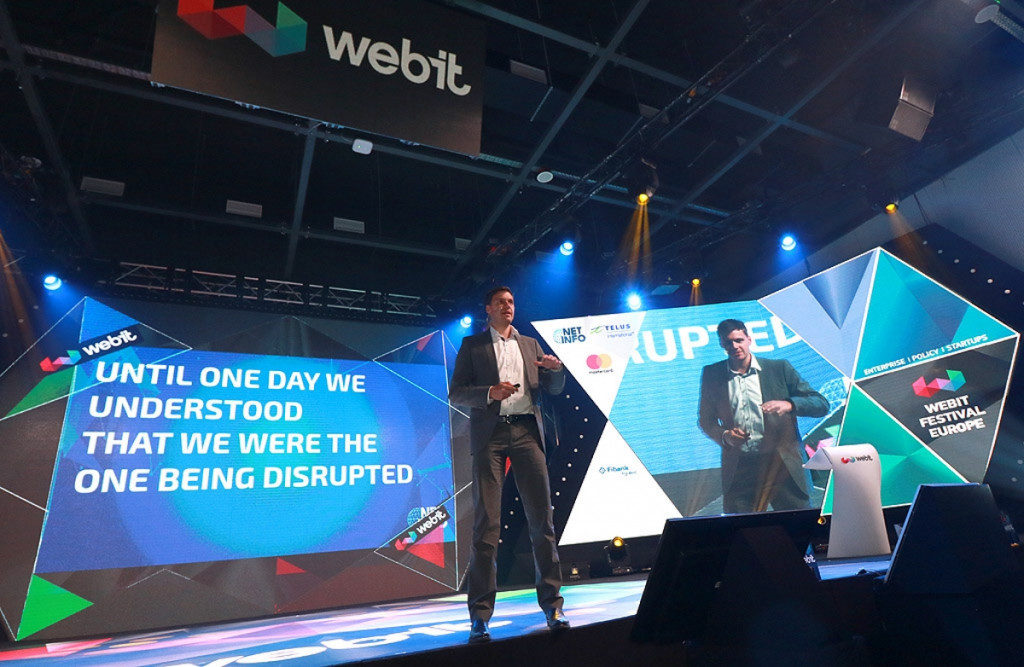 No matter if you're business is in retail, bio, health or digital, if you want to stay relevant, focus on AI shouldn't be between the lines and done sluggishly but a top priority. The best developers, data scientists, engineers and logical thinkers are literally being hunted by the biggest players so that they can respond to the fast-changing environment. Not only that, but the level of advancement in this field has piled up a lot of open source tools and frameworks that can be freely used. Interesting enough, the biggest companies with the highest advancement in AI are the ones who are open sourcing these kinds of projects.
AI investments have set its all-time highest point. Elon Musk has already launched Neuralink, a company that develops implantable brain-computer interfaces in order to connect brains with computers, the CEOs of eBay, Amazon, Google all say that not having an AI strategy will get companies out of business in ten years. The consumer journey and experience right now is not the greatest and AI is a way to make it better. Despite all the unknowns the artificial intelligence technology comprises, the benefits and chances ahead of it are immense and yet to be explored. More companies are gradually realizing this and working hard in adapting their strategy.
You can watch the full keynote of Hristo Hristov here:
[youtube https://www.youtube.com/watch?v=vQb59NdnI3k]
If you want to keep up with the latest trends in the world of digital economy and technology, then Webit.Festival is the place for you. Visit our website and book 2 in 1 of our Super Earlybird tickets for Webit.Festival Europe 2018. Have a peek at Webit.Festival 2017 in Sofia with some of our photos from the event.
[easingslider id="4954"]
No matter if you're business is in retail, bio, health or digital, if you want to stay relevant, focus on AI shouldn't be between the lines and done sluggishly but a top priority. The best developers, data scientists, engineers and logical thinkers are literally being hunted by the biggest players so that they can respond to the fast-changing environment. Not only that, but the level of advancement in this field has piled up a lot of open source tools and frameworks that can be freely used. Interesting enough, the biggest companies with the highest advancement in AI are the ones who are open sourcing these kinds of projects.
AI investments have set its all-time highest point. Elon Musk has already launched Neuralink, a company that develops implantable brain-computer interfaces in order to connect brains with computers, the CEOs of eBay, Amazon, Google all say that not having an AI strategy will get companies out of business in ten years. The consumer journey and experience right now is not the greatest and AI is a way to make it better. Despite all the unknowns the artificial intelligence technology comprises, the benefits and chances ahead of it are immense and yet to be explored. More companies are gradually realizing this and working hard in adapting their strategy.
You can watch the full keynote of Hristo Hristov here:
[youtube https://www.youtube.com/watch?v=vQb59NdnI3k]
If you want to keep up with the latest trends in the world of digital economy and technology, then Webit.Festival is the place for you. Visit our website and book 2 in 1 of our Super Earlybird tickets for Webit.Festival Europe 2018. Have a peek at Webit.Festival 2017 in Sofia with some of our photos from the event.
[easingslider id="4954"] 